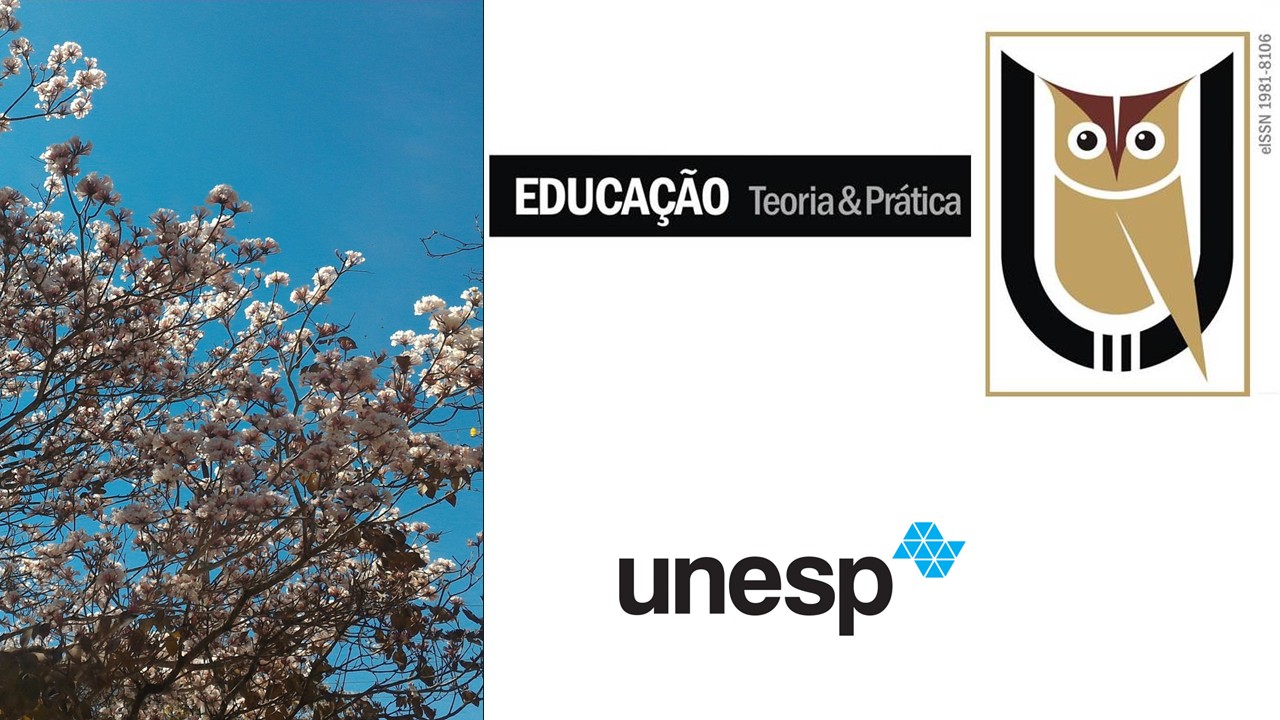Emergency remote education (ERE) in the 1st year of Elementary School in a municipal school of Manaus: impacts, challenges and possibilities
DOI:
https://doi.org/10.18675/1981-8106.v33.n.66.s17029Keywords:
Remote Teaching. Literacy. Early Years.Abstract
The research deals with emergency remote teaching in the 1st year of Elementary School I, exposing the impacts, challenges and possibilities of teaching children who have just left Kindergarten through this teaching modality. The general objective of this research is: to identify the impacts, challenges and possibilities of emergency remote teaching in the schooling process of children in the 1st year of Elementary School at a municipal school in the city of Manaus (AM). As specific objectives, we list a) the literature on emergency remote teaching, in Brazil, in the context of a pandemic, b) understanding the impacts, challenges and possibilities of remote work in the pandemic period; c) reflect on how the investigated school developed pedagogical organization processes aimed at literacy and literacy processes in the pandemic context. The research is qualitative of the bibliographic type, relying on document analysis techniques, investigating data on literacy throughout the pandemic and also using documents from a teaching unit of the municipal education network of Manaus (AM). Through the research, we showed that teachers, parents and students did not receive the necessary support, not material nor symbolic, for the development of activities in a remote period, as well as that the literacy processes demand the presence of the structuring experiences of the social understanding of writing, that cannot be transplanted to the remote model without direct and proportional damage to the level of poverty of the families.
References
ABALF, Associação Brasileira de Alfabetização. Posicionamento da ABALf sobre a reposição de aulas remotas na Educação Básica. Ofício nº 16/99 – GOE – APLO, 16/04/2020. Disponível em: https://28473cf1-9f63-40b0-b146-f3b3c65a8b23.filesusr.com/ugd/64d1da_02d84c489f924895a8ceb7ffc60fe062.pdf. Acesso em: 27 jan. 2022.
CARDOSO, C. A.; FERREIRA, V. A.; BARBOSA, F. C. G. (Des)igualdade de acesso à educação em tempos de pandemia: uma análise do acesso às tecnologias e das alternativas de ensino remoto. Revista Com Censo: Estudos Educacionais do Distrito Federal, [S.l.], v. 7, n. 3, p. 38-46, ago. 2020. Disponível em: http://www.periodicos.se.df.gov.br/index.php/comcenso/article/view/929. Acesso em: 4 abr. 2022.
FERREIRA, L. G., GRACIA FERREIRA, L.; ZEN, G. C. (2021). Alfabetização em tempos de pandemia: perspectivas para o ensino da língua materna. Fólio - Revista De Letras, v. 12, n. 2. Disponível em: https://doi.org/10.22481/folio.v12i2.7453. Acesso em: 4 abr. 2022.
FONSECA, J. J. S. Apostila de metodologia da pesquisa científica. João José Saraiva da Fonseca, 2002.
IBGE – Instituto Brasileiro de Geografia e Estatística. Pesquisa Nacional por Amostra de Domicílios. Disponível em: https://bncamazonas.com.br/ta_na_midia/pais-tem-24-milhoes-de-criancas-de-6-e-7-anos-no-analfabetismo/. Acesso em: 4 abr. 2022.
ANDRADE, A. N.; NEGRÃO, F. C.; VILAÇA, A. L. A. O ensino remoto emergencial no Amazonas nas lentes dos professores: inclusão ou exclusão? In: CONGRESSO NACIONAL DE EDUCAÇÃO, 7., 2021, Campina Grande, PB. Anais [...]. Campina Grande, PB: Realize Editora, 2021. Disponível em: https://editorarealize.com.br/artigo/visualizar/80741. Acesso em: 17 abr. 2022.
NEGRÃO, F. C.; DAVIM, J. A. C. S. Perspectivas discentes sobre aulas remotas: desafios e (novas) possibilidades. In: I SIMPÓSIO NACIONAL DE ESTRATÉGIAS E MULTIDEBATES DA EDUCAÇÃO, 1, 2020, Online. Anais [...]. Online: Centro Universitário do Sul de Minas, 2020, p. 206-208.
NEGRÃO, F. C.; MORHY, P. E. D. O cenário da educação pública no Amazonas em tempos de pandemia. In: MARTINS, G. Estratégias e Práticas para Atividades a Distância. Quirinópolis, GO: Editora IGM, 2020.
RONDINI, C. A., PEDRO, K. M., & DUARTE, C. dos S. (2020). Pandemia do covid-19 e o ensino remoto emergencial: mudanças na práxis docente. Revista Interfaces Científicas – Educação, v. 10, n. 1, p. 41–57, 2020. Disponível em: https://doi.org/10.17564/2316-3828.2020v10n1p41-57. Acesso em: 17 abr. 2022.
SILVA, M. O. da. Alfabetização no contexto da pandemia de Covid-19: Estratégias e percepção da aprendizagem por gestores, docentes e famílias. Revista De Ciências Humanas, v. 3, n. 21, 2021. Disponível em: https://periodicos.ufv.br/RCH/article/view/13401. Acesso em: 20 jun. 2022
SOARES, M. Alfabetização: a questão dos métodos. São Paulo: Contexto, 2016.
SOARES, M. Alfaletrar: toda criança pode aprender a ler e escrever. São Paulo: Contexto, 2020.
UNESCO. Startling digital divides in distance learning emerge. 21/04/2020. Disponível em: https://en.unesco.org/news/startling-digital-divides-distance-learning-emerge. Acesso em: 4 abr. 2022.
Downloads
Published
How to Cite
Issue
Section
License
Authors who publish in this journal agree to the following terms:
a) Authors assign copyright to the journal, with the work simultaneously licensed under the Creative Commons Attribution License that allows sharing of the work with acknowledgment of authorship and publication in this journal.
b) The policy adopted by the Editorial Committee is to assign copyright only after a period of 30 months from the date of publication of the article. After this time, authors interested in publishing the same text in another work must send a letter to the Editorial Committee requesting the release of the assignment of copyright and wait for a response.
c) This journal provides public access to all its content, since this allows greater visibility and reach of published articles and reviews. For more information on this approach, visit the Public Knowledge Project, a project that developed this system to improve the academic and public quality of research, by distributing OJS as well as other software to support the public access publication system to academic sources. The names and email addresses on this website will be used exclusively for the purposes of the journal and will not be available for other purposes. This journal provides open any other party  This work is licensed under a Creative Commons License
This work is licensed under a Creative Commons License











